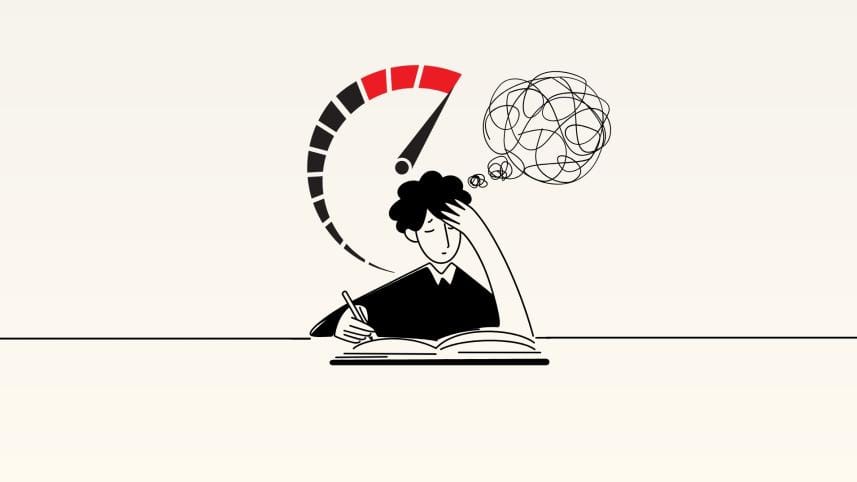Psychological stress and how it affects the mental well-being of students

Today, students have to deal with multiple sources of psychological stress that negatively affect their mental well-being as well as academic performance. The stress factors in question can be both external and internal. The external stress factors come from academic institutions, society, cultural norms, family values, and global perceptions. Meanwhile, the internal factors can stem from financial struggles and stability, along with personal beliefs and individual issues.
Students feel pressured due to their academic commitments almost all the time, especially in this part of the world where they need to fulfil the expectations of their parents, teachers, and even society. Sometimes, in this process, burnout can also occur which was something addressed by Putwain and Daly back in 2014.
The environments students are brought up in also create additional stress due to their competitive nature and standardisations in various fields, which was discussed by Richardson with his colleagues in 2012. Most significantly, due to societal and family pressure, the fear of failure in a personal zone becomes a terrifying factor, which eventually can result in self-doubt as well as create an extreme degree of anxiety. Almost a hundred years ago, in 1908 Yerkes-Dodson Law discussed the fear of failure and mentioned how stressful it is when any human being wishes to do anything in life, especially, if someone leaves the stigmatised protocols and chooses to follow their own dreams.
Students also feel a lot of societal and peer pressure because, besides excelling academically, they are also required to maintain social relationships and are expected to blend in with other members of society. Often, this also creates an additional anxiety. Brown and Larson, in 2009, mention in their research that students also fall short in self-esteem when there is too much pressure on them to deal with social relationships. Besides, during this time, students often get involved in various sorts of friendships and romantic relationships outside their families, which causes further emotional distress.
However, the most horrible pressure on them comes when students face bullying, cyberbullying, or harassment at their academic institutions as well as on social media, which can create frustration on another level. Excessive screentime can also disrupt sleep leading to cognitive and emotional fatigue.
In Bangladesh, as well as many other South Asian countries, additional societal pressure comes from families as they often choose the career path for their children. This, in turn, can often lead to the students' downfall. Back in 2005, Eccles mentioned that parental expectations regarding their child's career choices make them decide their students' study field as well, and it can only create frustration and conflict in the students if they themselves do not desire that predetermined career path. In 1991, Markus and Kitayama talked about this significantly.
Psychological stress can often become so overwhelming and unbearable that students end up making wrong decisions. While school-going students may find ways to express their struggles, university students often keep their issues to themselves. The pressure of academic performance, career uncertainty, and personal expectations can make it difficult for them to share their concerns with others.
For students, dealing with such levels of stress is extremely difficult. However, proper guidance and support – from family, friends, and peers – can help them a great deal in this regard. Developing good habits, such as reading, can also be an effective way to manage stress. Reading not only expands knowledge but also helps shift focus from negative thoughts to productive engagement.
While discussions on psychological stress are common, practical solutions are often overlooked. Counselling can be highly beneficial, yet many students hesitate to seek professional help. Furthermore, Ratey and Hagerman explained in 2013 that lack of physical activity reduces endorphin levels which makes the students more vulnerable to stress. Hence, to deal with stress, students need to be physically involved in outdoor sports and activities.
It is essential to recognise that no one else can completely solve another person's psychological struggles. The best we can do is offer our support, guidance, and a listening ear.
Views expressed in this article are the authors' own.
Dr. Tarnima Warda Andalib is an assistant professor at BRAC University.
Labby Ahsan is a final-year student at BRAC University, outreach manager at OSUN and the President of the Newspaper Olympiad.




 For all latest news, follow The Daily Star's Google News channel.
For all latest news, follow The Daily Star's Google News channel.
Comments